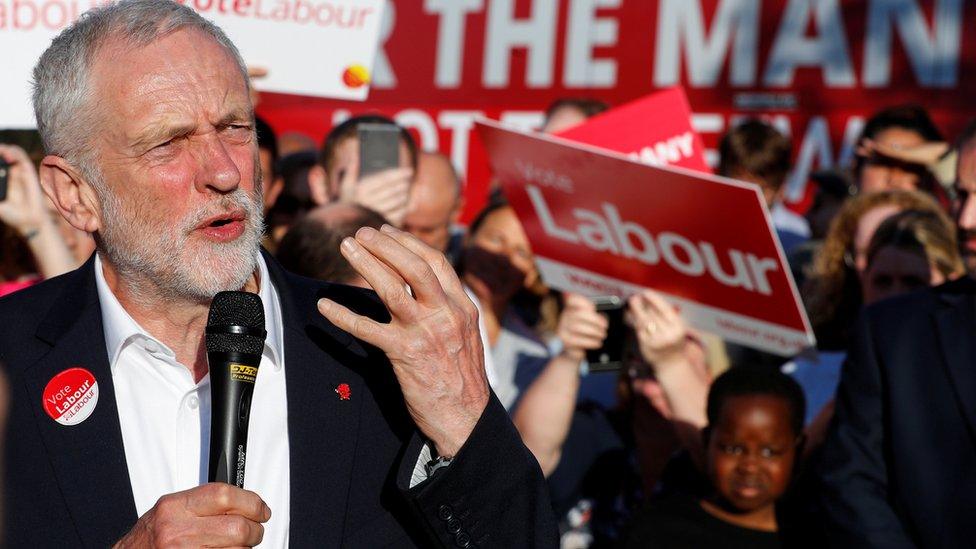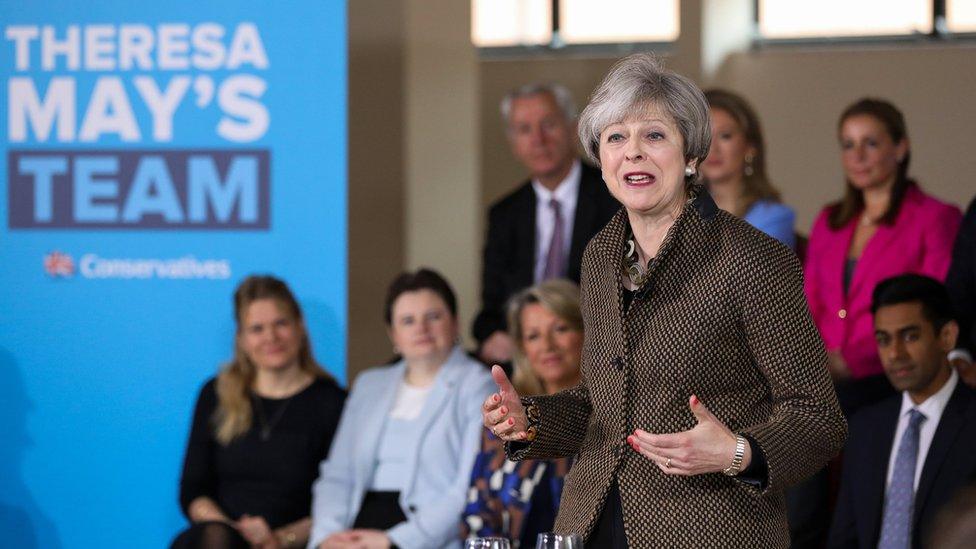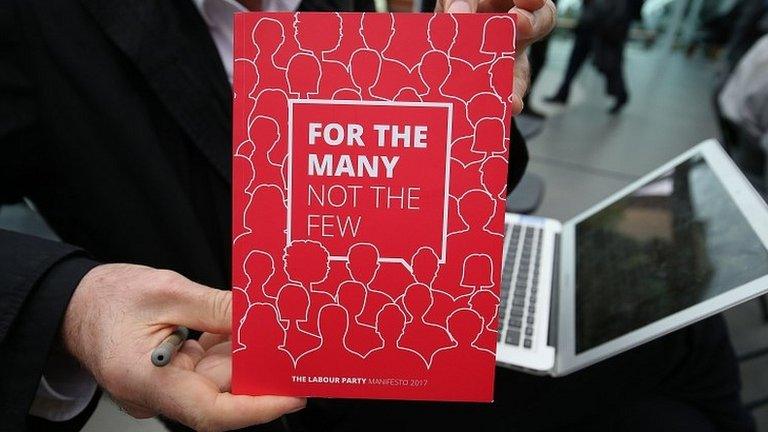Tories and Labour not being honest with voters: IFS
- Published
- comments

Neither the Conservatives nor Labour are being honest with voters about the economic consequences of their policy proposals, an influential think tank has warned.
The Institute for Fiscal Studies said the Tories had very few tax or spending commitments in their manifesto.
Labour, in contrast, was proposing very big increases in tax and spending.
However, the IFS said Labour's plans for paying for its proposed expansion in state activity would not work.
IFS deputy director Carl Emmerson said neither manifesto gave voters an honest set of choices or addressed the long-term challenges the UK faced.
"For Labour, we can have pretty much everything - free higher education, free childcare, more spending on pay, health, infrastructure. And the pretence is that can all be funded by faceless corporations and 'the rich'," he said.
"There is a choice we can make as a country to have a bigger state - that would not make us unusual in international terms. But that comes at a cost in higher taxes, which would inevitably need to be borne by large numbers of us."

Meanwhile, the Conservatives offered spending cuts the party had already promised, Mr Emmerson said.
"Additional funding pledges for the NHS and schools are just confirming that spending would rise in a way broadly consistent with the March Budget," he told a briefing in London on Friday.
"Compared with Labour, they are offering a relatively smaller state and consequently lower taxes. With that offer come unacknowledged risks to the quality of public services, and tough choices over spending."
The IFS said the Tory plans "imply at least another five years of austerity, with the continuation of planned welfare cuts and serious pressures on the public services including on the NHS".
Labour's calculations that £49bn a year could be raised from the wealthiest individuals and companies were flawed and would raise £40bn at most in the short term, and less in the long term, it said.

The Conservatives' plan to impose what the IFS called "very big cuts" to working-age welfare benefits would save £11bn annually by 2021-22, but would significantly cut the incomes of the poorest working age households.
"Labour's manifesto in fact commits it to cancelling only a small minority of these cuts... changing this would require finding several billion pounds extra from somewhere," the IFS said.
The Conservative commitments to replace the "triple lock" on the state pension with a "double lock" from April 2020 and means-test winter fuel allowance payments represent a "very modest change", according to the think tank.
However, Labour's proposal to maintain the triple lock and to start paying state pensions no later than the age of 66 would be "immensely expensive in the long run - up to £50bn a year in 50 years' time" compared with raising the state pension age in line with life expectancy and increasing the pension in line with earnings.
John McDonnell, the shadow chancellor, said the IFS had underestimated the revenue-raising effectiveness of some of Labour's proposed tax changes, but added: "We recognise the potential for uncertainty, which is why we have allowed headroom in our plans."
He added that the IFS's assessment of the Conservatives' plans indicated they would "damage the economy and public services with five more years of damaging austerity".
David Gauke, the Conservative Chief Secretary to the Treasury, said taxes would rise to their highest peacetime level under Labour: "Jeremy Corbyn is not being transparent about how his plans will hit ordinary working families."
- Published26 May 2017
- Published18 May 2017

- Published16 May 2017
